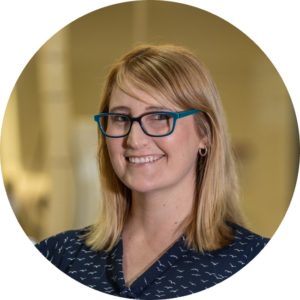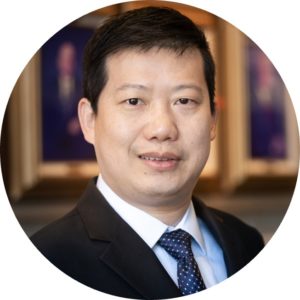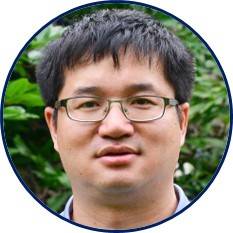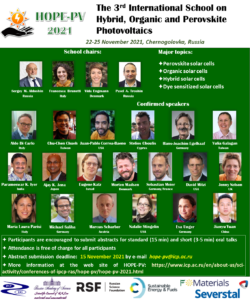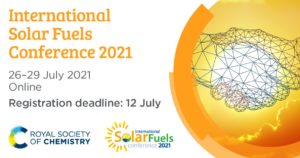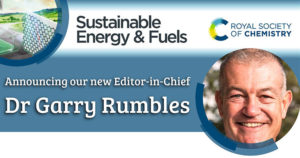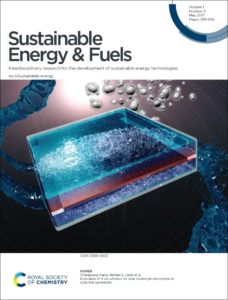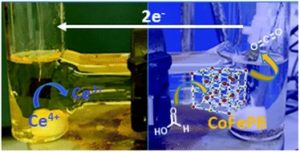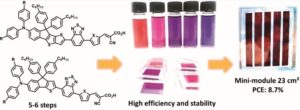We are delighted to welcome nine new members to the Sustainable Energy & Fuels Advisory Board!
Introducing Dr Jessica Allen, (University of Newcastle, Australia), Dr Susan Habas (NREL, USA), Dr Lieve Laurens (NREL, USA), Prof. Annamma Anil Odaneth (ICT Mumbai, India), Dr Jude Onwudili (Aston University, UK), Prof. Martin Oschatz (Friedrich-Schiller-University Jena, Germany), Dr Wendy Shaw (PNNL, USA), Prof. Adalgisa Sinicropi, (University of Siena, Italy) and Prof. Yan Yao, (University of Houston, USA) our latest Advisory Board members.
The Sustainable Energy & Fuels Advisory Board is comprised of leading researchers from across the breadth of energy science, who support the journal as reviewers and authors, providing strategic feedback and acting as advocates in the community. Meet our full Editorial and Advisory Boards on our webpage: https://rsc.li/energy-fuels and find out a bit more about our newest Advisory Board members below, alongside examples of their research.
Pictured left to right: Dr Jessica Allen, Dr Susan Habas, Dr Lieve Laurens, Prof. Annamma Anil Odaneth and Dr Jude Onwudili.
Pictured left to right: Prof. Martin Oschatz, Dr Wendy Shaw, Prof. Adalgisa Sinicropi, and Prof. Yan Yao
Dr Jessica Allen, a Senior Lecturer at the University of Newcastle, Australia, combines expertise in electrochemistry and engineering with interests spanning low emission energy technologies as well as renewable energy, carbon capture and utilisation and energy storage (both thermal and electrochemical).
Read some of Jessica’s work in Sustainable Energy & Fuels: The impact of carbonate salts on char formation and gas evolution during the slow pyrolysis of biomass, cellulose, and lignin
Dr Susan Habas, Senior Scientist in the Catalytic Carbon Transformation and Scale-up Center at NREL, works in nanoscience and materials chemistry, looking at the design, synthesis, and characterization of nanostructured catalysts, surface chemistry for selective chemical transformations, scalable methods for solution-phase nanomaterials synthesis and the production of premium fuels and chemicals from biomass.
Read some of Susan’s work: An investigation into support cooperativity for the deoxygenation of guaiacol over nanoparticle Ni and Rh2P
Dr Lieve Laurens is a group leader and senior scientist at NREL, researching bioenergy-relevant biomass. In particular, she works in algal biomass, with a focus on analytical biochemistry, biomass composition, conversion and valorization.
Read some of Lieve’s work in Sustainable Energy & Fuels: Bioproducts from high-protein algal biomass: an economic and environmental sustainability review and risk analysis
Prof. Annamma Anil Odaneth works at the Center of Energy Biosciences at ICT Mumbai. Her research looks at product development through biocatalytic processes, and biocatalysts for valorisation of wastes and processed wastes.
Dr Jude Onwudili leads a Sustainable Chemicals laboratory at Aston University. His work touches upon hydrothermal processing of biomass and organic wastes; catalysis & applied catalysis for fuel & chemicals; thermochemical (pyrolysis, liquefaction and gasification ) conversion of biomass, algae and plastic waste and more.
Read some of Jude’s work: Catalytic depolymerization of alkali lignin in subcritical water: influence of formic acid and Pd/C catalyst on the yields of liquid monomeric aromatic products
Prof. Martin Oschatz of Friedrich-Schiller-University Jena, Germany, researches the chemistry of materials for energy applications. His group works across porous materials and interfacial phenomena, electrochemical energy storage and electrocatalysis.
Read some of Martin’s work in Sustainable Energy & Fuels: Controlling the strength of interaction between carbon dioxide and nitrogen-rich carbon materials by molecular design
Dr Wendy Shaw, Chief Science and Technology Officer at Pacific Northwest National Laboratory, USA, designs catalysts for renewable energy which mimic features of enzymes.
Read some of Wendy’s work in Sustainable Energy & Fuels: Chicken fat for catalysis: a scaffold is as important for molecular complexes for energy transformations as it is for enzymes in catalytic function
Prof. Adalgisa Sinicropi, University of Siena, is a computational chemist focused on the design and characterization by means of computational methods and life cycle analysis of innovative materials for the production of new generation photovoltaics characterized by high efficiency, stability and with high environmental added value.
Read some of Adalgisa’s work in Sustainable Energy & Fuels: D–A–π–A organic dyes with tailored green light absorption for potential application in greenhouse-integrated dye-sensitized solar cells
Prof. Yan Yao at the University of Houston, works on the design and synthesis of materials and architectures to address new challenges arising in the applications of energy storage and conversion. Their group studies a broad range of materials including two-dimensional materials, inorganic nanostructures, organic crystals, polymers, and organic/inorganic hybrid materials.
Read some of Yan’s work: Benchmarks of the density functional tight-binding method for redox, protonation and electronic properties of quinones
The Editorial team extends a warm welcome to all our new Advisory Board members, we are very much looking forward to working with everyone.
Comments Off on Introducing our newest Advisory Board members












